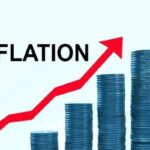Inflation is a rise in prices of goods and services, which can result in the decline of purchasing power over time. The recent removal of fuel subsidies in Nigeria has led to immediate and alarming increase in fuel prices which triggered a chain reaction, causing higher transportation costs and ultimately contributing to inflation. A recent check on the CBN website (December 2023) posted the inflation rate at 28.2 per cent as at November, 2023.
Virtually the cost of all goods and services has geometrically risen. The cost of transportation, foodstuffs, clothing, school fees, healthcare etc. has caused most people to forcefully adjust and some totally abstain from consuming some basic items and services.
Petrol which hitherto was selling for less than N200/litre is now sold for about N617/litre and in some areas up to N700/litre. Also, a bag of rice which was sold for less than N20,000 is now above N50,000.00. Indeed, almost all consumables have seen an increase in their prices by more than 60 per cent.
Meanwhile, there has been no corresponding changes or increase in the income and wages of our parents who work in public and the private sectors. Majority of them are low-income earners. These challenges have impacted immensely on the psychology of most people and are translating into various forms of frustration, depression, sickness and sometimes death due to lack of resources to pay medical bills.
- Berger asking for N1.3trn to complete Abuja-Kaduna-Kano highway — Minister
- Foundation adopts 5 orphans from Plateau IDP, donates relief materials
For us students who rely on our parents’ income for school fees, feeding and general upkeep, the experience has also not been easy. This gives me a serious concern considering the stress our parents go through to make ends meet.
It is in the public domain that the government is making concerted efforts towards alleviating these challenges with particular emphasis on the high cost of goods and services. However, the need to draw the attention of the government to act fast as the poverty rate is reaching rooftop as a result of low purchasing power of the mass people.
Much as the policy of the subsidy removal is for the good of the nation as claimed by the government and as a measure to eliminate corruption in the oil industry, the government should hastily make adequate provision and put in place a strategy for cushioning the effect of the untold hardship the measure has caused.
With the impact of the current rise in the cost of basic goods and services, the government is enjoined to do more in the area of palliatives, job creation opportunities at lower level and fight corruption in all spheres of the economy.
In my opinion, the rich and philanthropists in society should also support the government by rolling out palliatives to the less privileged. This will help in curbing the high rate of crime in society. The clerics should not be left out in this clarion call. Every citizen is also invited to be their brother’s keeper.
In conclusion, I wish to call on the government at all levels, all corporate organisations and all well-meaning Nigerians to take responsibility, come up with policies and measures to alleviate the sufferings in the land; specifically, to reduce the pains of the masses.
Government is also enjoined to urgently increase the palliative measures and reach out to more people in the lower class by declaring free medical treatment for low-income earners, reduction in school fees, tax relief for small businesses. Keep investing in critical infrastructure that will lead to mass job creation, provide agricultural support to the rural areas and ensure the students’ loans scheme is implemented properly.
Dorcas Sunday is a 200-Level Student in the Mass Communication Department, Veritas University Bwari, Abuja. ([email protected])

 Join Daily Trust WhatsApp Community For Quick Access To News and Happenings Around You.
Join Daily Trust WhatsApp Community For Quick Access To News and Happenings Around You.


